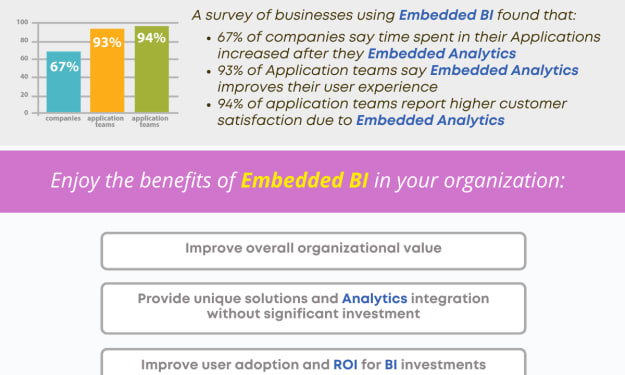5 Essential Resources for Healthcare Professionals
A few crucial resources every healthcare professional might need.

Healthcare professionals (HCPs) are the frontline of our healthcare system. As such, they play a significant role in determining what level of care their patients receive and how well it is coordinated. Hospitals and outpatient clinics need to be able to rely on their HCPs to provide accurate information.
Below are some resources that help HCPs in coordinating care, improving patient outcomes, and ensuring that they are providing the highest quality of service to patients:
1. Wearable Cameras
HCPs are increasingly using wearable cameras to conduct patient interviews, not only for convenience but also because of the growing demand for more convenient healthcare. For example, an HCP may use a wearable camera to record symptoms experienced by a patient with dementia and then discuss these symptoms with them and their family and carers.
Another benefit is that the data collected during such interviews can be stored securely on EMRs, preventing lost or stolen. One downside is the lack of control over who has access to this data once uploaded onto an EMR, so HCPs need to ensure adequate security measures before sharing any such data.
2. Clinical Guidance Documents
Like clinical algorithms, HCPs use clinical guidance documents to diagnose and treat patients. However, these documents are typically more comprehensive than algorithms, as they do not assume that an individual patient is suffering from a single condition.
They tend to be extensive in scope and provide information on how best to manage different types of patients with the same disease process or set of symptoms. For example, NICE has created guidance for managing chronic obstructive pulmonary disease (COPD), which includes information on how to identify individuals who may be suffering from COPD and advice on managing the condition in adults aged 40-75 years with risk factors for cardiovascular disease.
3. Clinical Information Standards
NICE is a great example of the important role that national organizations play in supporting HCPs. It guides thousands of topics and publishes information on implementing this guidance into clinical practice. For example, NICE produces an extensive range of information leaflets for different conditions.
However, until recently, there was not an easy way for HCPs to download these leaflets digitally. Nowadays, it is possible to download all NICE information leaflets through Research4Life, which also offers access to the International Clinical Trials Registry Platform (ICTRP) database.
This database includes over 300 million records from over 6,000 clinical trials worldwide. It helps researchers find out about ongoing studies and encourages collaboration between scientists studying the same condition.
4. Telemedicine and e-Diagnosis
Smartphones can improve healthcare by allowing HCPs to provide remote diagnosis and treatment over large geographic distances. For example, according to the World Health Organization (WHO), telemedicine can facilitate home-based care for people living with chronic conditions such as rheumatic disease, burns, and diabetes.
The use of mobile technology in developing countries means that HCPs can now diagnose patients who would not normally have access to health services, particularly those who live in isolated communities scattered across large geographical areas. Furthermore, it allows doctors located hundreds of kilometers away to discuss patients' cases with other HCPs and access medical records.
5. Smartphone-compatible Electronic Health Records (EHRs)
Because smartphones can be used as medical devices, HCPs can store and access EHRs under real-world conditions. This means that they no longer need to work in controlled hospital environments, which may allow them to provide more effective treatment for their patients.
There are many different companies that offer EHR software, which allows HCPs to record patient data such as medication history, allergies, and past surgical operations during home visits or telephone consultations. However, there are some concerns about sharing patients' sensitive information using mobile devices, so HCPs must be aware of available security features.
In Conclusion
Technology plays an important role in improving healthcare provision. It offers HCPs the opportunity to receive medical information remotely and bring it into their everyday practice while facilitating better access to remote diagnosis and treatment. Furthermore, it provides a platform for implementing national guidelines and standards and offering the chance for HCPs to store and manage EHRs under real-world conditions.





Comments
There are no comments for this story
Be the first to respond and start the conversation.